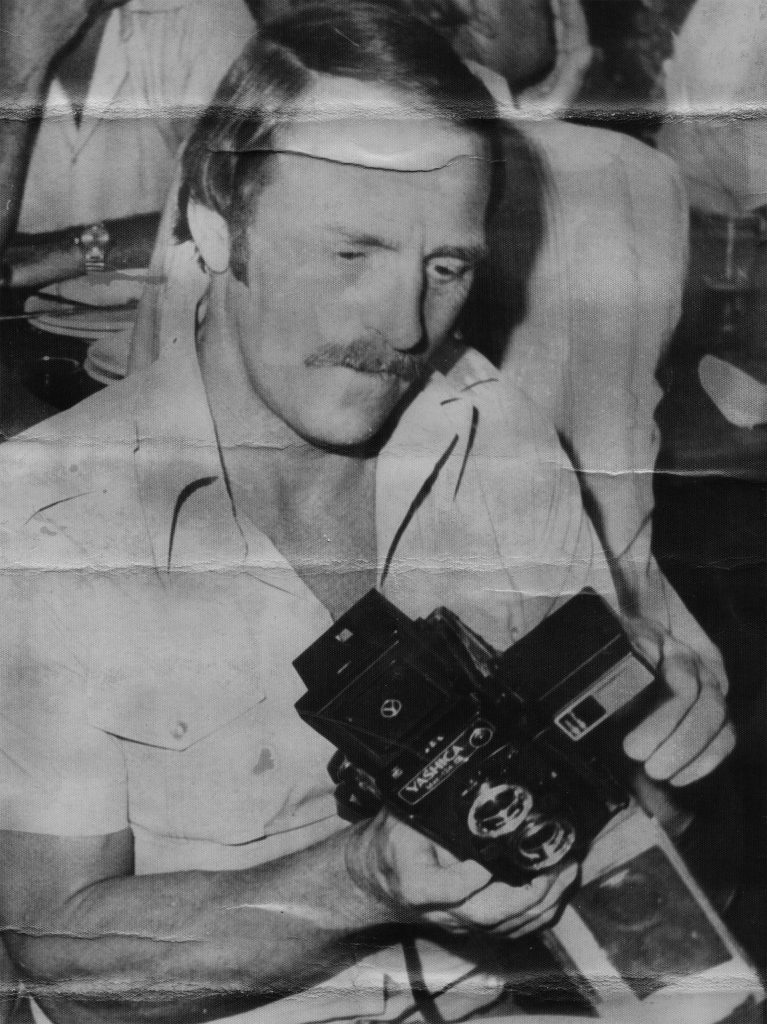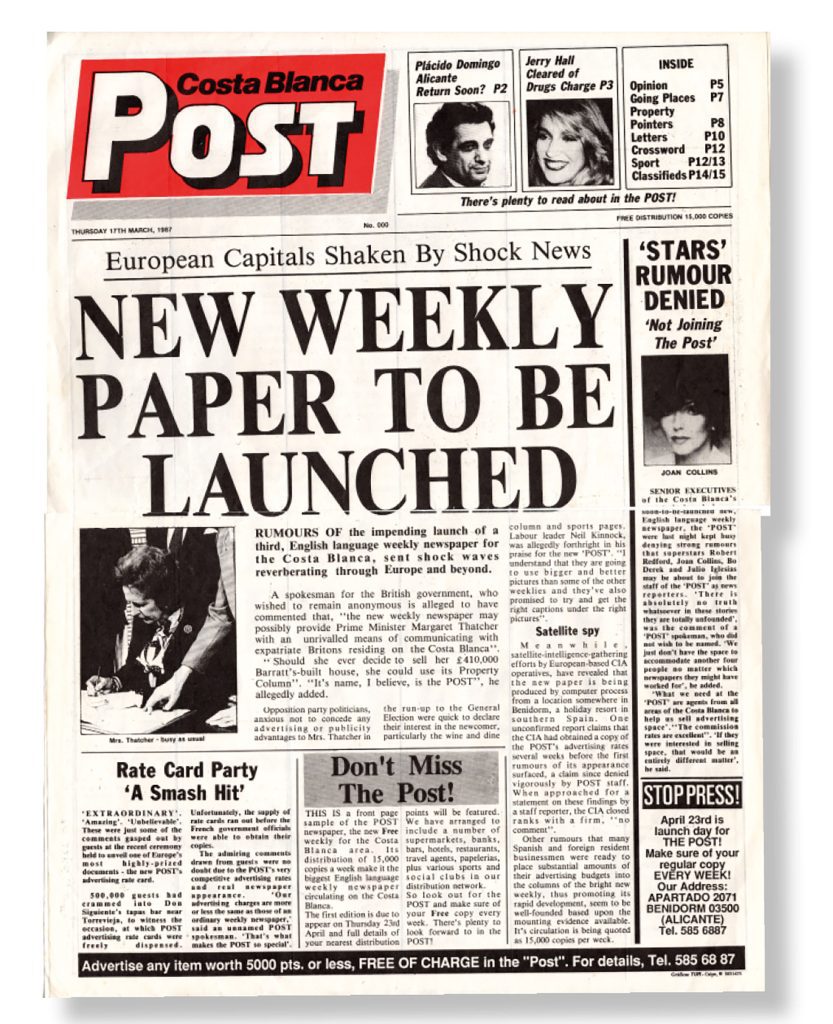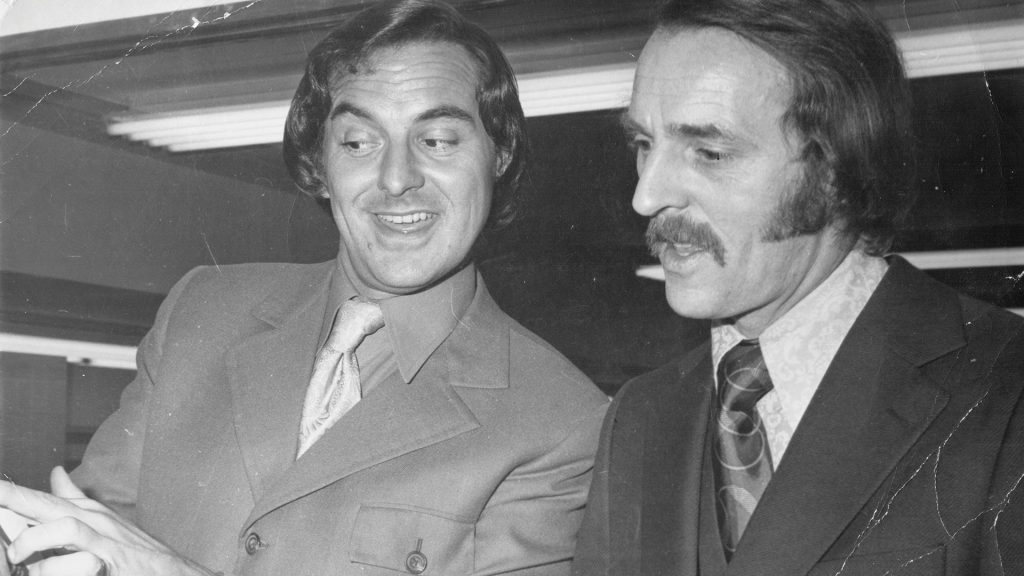From Cardiff to Costa Blanca and back
Whitchurch’s Peter Williams set up his own weekly Cardiff newspaper in 1968, sold it, and moved to Spain to set up a few more. This is his story.
“They say that if you were born on Caerphilly Road, you’re a North Walian. They say that if you were born in Ely, then you’re a West Walian and if you were born in Rumney, you were born in Gwent.
I was born opposite the Cardiff Arms Park. That makes me a true Cardiffian.”
Sat at his Whitchurch home, Peter Williams sifts through a collection of newspaper cuttings and black and white photos.
“You know who that is don’t you?” he asks, picking up a photo and passing it to me. The photo is of Peter alongside Bob Monkhouse.
“Bob was spending a few days in South Wales, opening a chain of supermarkets. It was my job to ferry him around. By the third day, Bob was jokingly telling the local policemen that I was following him around.”
“So how come you were ferrying Bob Monkhouse around?” I ask.
“Ah. I haven’t told you the background story have I?” says Peter. His wife appears with a hot cup of coffee in a china cup. And so I settle down to hear, from the beginning, Peter’s tale.
“I went to school at Howard Gardens School in Cardiff. I then spent five years in the RAF on the Isle of Wight working on radar, which is where I met my wife, Sheila. We moved back to Cardiff where I applied for a job at the Western Mail. I was looking after the advertising there. I enjoyed writing from an early age and always had an interest in penning stories.
“I eventually left the Western Mail to launch a weekly newspaper with a colleague of mine. We launched the Cardiff Mirror on February 23rd 1968 and the Penarth Mirror not long after. Our aim was to take on the South Wales Echo. What you have to remember is that back in those days, the main medium that people had for news was the Echo. For businesses, it was also the only way that they could reach potential customers.

“After just 21 months of publishing, we had a phone call from a director at Rupert Murdoch’s company. He wanted to see me in his office at 8am the next day. So off to London I went. He told me that they had looked at the Cardiff Mirror, and that it was so successful that they wanted to buy it. So buy it they did.”
Peter and Sheila decided to head for sunnier climes so they packed up and moved to Spain.
“We moved to the Costa Blanca where there was only one English-language weekly newspaper, so I set one up. It became the biggest English-language weekly newspaper circulating on the Costa Blanca.”
Peter shows me the front page of one of his newspapers. The main headline reads ‘Rugby Row’ and features the story of an English rugby team who were beaten by Spanish police for no reason.
“It was a case of mistaken identity,” says Peter. “There had been a Scottish rugby team marauding around the area previously, deliberately damaging property and generally causing a nuisance. The Spanish police spotted the English team and waded in to dish out some rough justice.”

Working for the local newspaper meant that Peter was often one of the first to know of any crimes that took place in the local area.
“I remember publishing a story about a robbery that had taken place. I wrote the story up, the newspaper went to print and it went out to all our readers. The head of police then turned up and told me not to print anything about the robbery, but by that point, everybody in the area knew about it because they had read it in the paper!”
Peter’s experience within the industry led him to forge connections with well-known names. He hands me more photos.
“This is Edmundo Ros. They called him the Calypso King. And this is Alan Taylor. He was the guy who hosted Mr & Mrs on the telly.
“We had to move back to the UK for a while after Sheila fell ill. I was appointed press officer for the Football Association of Wales and wrote a lot for national newspapers.
We became good friends with John Charles and his wife Peggy who often used to come to our house.We had some good parties with them. Sheila’s condition eventually improved and we moved back out to Spain in 1998.”
It was while Peter was back in Spain that, as well as publishing English-language magazines, he penned his debut novel.
No Flowers for Frankie is a thick-set book and Peter is keen for me to check the first few pages where the main characters are listed.
“It’s set in the Riverside and Butetown area of Cardiff during the dark days of the mid World War depression.”
The book tells the story of Frankie Gallagher, a tough nut who turns to crime in the face of extreme poverty. Accuracy and attention to detail was Peter’s obsession when planning and writing the novel.
“It’s a story that needed to be told,” says Peter. “Although it’s a work of fiction, it’s based on events that could well have happened and in some cases, did happen. I researched all the technical details. For instance, the cover picture of a 9mm Browning was the original gun used by Welsh police at the time.”
Peter flips the book over and points out the name of a Spanish car dealership that is featured on the back.
“I went to see these people when I was writing the book and I asked them how much they’d pay me to mention their dealership within the actual story. My publisher said that he had never heard of this kind of thing, but pay up they did!”
No Flowers for Frankie received glowing reviews, one in particular from the South Wales Echo’s Dan O’Neill, who wrote:
‘A journey from the city’s restless streets to the ‘anything goes’ affluence of the Spanish Costas’.
Outside their Whitchurch home, a chilly winter wind bends the branches of the trees in their garden.
And as Whitchurch prepares for the festive season, the Spanish coast is somewhere that Peter and his wife still long for.
Sheila flips open a photo album and reminisces about warmer, more carefree days.
“We made so many friends out in Spain. Spending Christmas there was always great, enjoying especially the food and the wine. We stayed in a hotel there one year as we wanted to stay away from the British tourists – we wanted it just to be us two.
Another British couple turned up and were plonked on the table with us. But we loved Christmas there – watching the children gather in the local square on the 6th January and taking lovely long walks on the quiet beaches.”
Sheila closes the photo album and places it back on the shelf.
“We would go back there tomorrow if we could,” says Peter.

